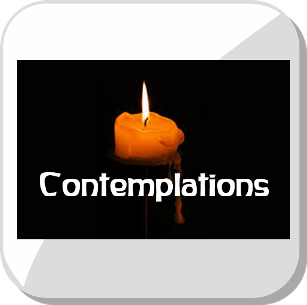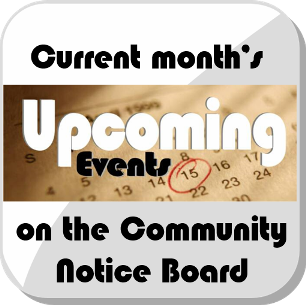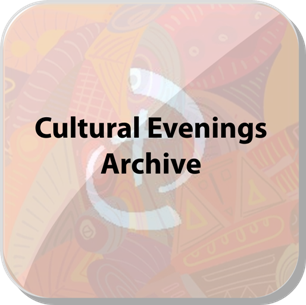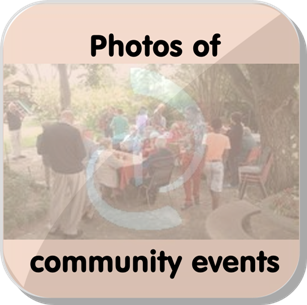|
Report by John-Peter Gernaat
This is an old understanding that if one wishes to understand what someone or a group or community of people believe, one can discover it in the way in which they pray. One can understand much of the relationship that they have with the Divine in the way in which they relate to the Divine. Therefore, it is possible to find out what we, as The Christian Community, hold and understand from the way in which we pray. This includes the Act of Consecration of Man. It is in the Act of Consecration that we hear the Creed. This is a creed that was written specifically for us and for our times. The Creed that one will hear in the Act of Consecration of Man does not sound like the creed that one may hear in other denominations. There is value in referring back to the discussions of February 2022 on the Creed at this link https://bit.ly/creed2022 to discover the meaning of the word creed and that the ‘traditional’ creeds begin each of the twelve statements with “I believe” in the Apostles Creed, changed to “We believe” in the Nicene Creed. This change unites those who stand together in a common belief. The Nicene Creed was finalised in the latter part of the fourth, early fifth centuries. The Nicene Creed received an addition in the 11th century (that further divided the Western and Eastern Churches). The problem with the traditional creed is that it pronounces statements of belief. It doesn’t necessarily mean that the statements are fact. Usually, in the normal way we speak, ‘belief’ has to do with ‘hope’. This is very different from a statement of faith which have to do with the conviction of the relationship. Rudolf Steiner, in wrestling with the creed, moved away from statements of belief to just statements. The Creed in The Christian Community does not begin with “I believe in one God, the Father, the Almighty, Maker of heaven and earth, of all things visible and invisible.” It begins with: “An Almighty Divine Being …” It is not dependent on my belief in an Almighty Divine Being or in the hope that this belief will confirm something. It is a statement made in the conviction of the existence of an Almighty Divine Being. “An Almighty Divine Being, spiritual-physical …” which explains something of the nature of this being. “An Almighty Divine Being, spiritual-physical, is the ground of existence of the heavens and of the earth who goes before his creatures like a Father.” Hearing this tells one what we understand, or we may understand, of the reality of this Almighty Divine Being. Rudolf Steiner, in writing this creed, worked at finding expressions that speak to the reality of things independent of anyone’s personal belief. Thus, working with this creed is coming to terms with a reality. Coming to terms with a reality not only as a thought, but also working with this reality as a way of expressing actions and interactions in life. The word Credo is Latin and the creeds that predate ours were written in the language of the Roman Empire. This was expressed in a language that primarily expressed law and contract. Latin is not a language of thought and feeling. Greek, in which the Gospels were written, was the language that expressed philosophy and understanding. Latin thus codified the creed, making it ‘law’ so that anyone who did not prescribe to the belief was not included. Changing the creed to statements means that the induvial is free to relate to it in their thinking, feeling and the actions of their life. There is freedom in the relationship one builds with the creed, but the relationship does not change the reality of the statements. The Creed is that part of the Act of Consecration where the priest removes the vestment of priesthood, the stole, that band of colour placed around the neck, crossed over the heart region and tucked into the belt. Thus, the Creed is spoken from the altar not by a human in their priestly capacity, but in their capacity as a human being. The Creed are words inserted into the ritual that come from our human understanding, wrestled out of our best thinking. Therefore, these words are not mediated out of the Spiritual World but rather words that are mediated out of a human being’s attempt to relate to the Spiritual World. The Creed is written in twelve statements. In our Creed – reading only the first words of each of the twelve statements – is mostly about Christ. This is less easy to discern from the older creeds. Ours is clearly a creed of being Christian. The first statement describes an Almighty Divine Being. Then: “Christ, through whom …”, “In Jesus, the Christ entered …”, “The birth of Jesus …” who becomes the bearer of the Christ, “The Christ Jesus suffered under Pontius Pilate …”, “In death He became …” (He, referring to Christ), “Since that time He is the Lord …”, “He will in time unite for the advancement of the world …”, “Through Him can the Healing Spirit work”. Even when we come to the statement in the creed about the future working of the Holy Spirit, there is Christ. When the creed speaks about us, i.e. communities, the ecclesia (those who gather), it speaks about Christ: “Communities whose members feel the Christ in themselves …” and ends with “… the health-bringing power of the Christ”. The last three statements also flow from a relationship to Christ: “… hope for the overcoming of the sickness of sin; … continuance of Man’s being; … preservation of their life destined for eternity”. Except for the opening statement every other statement is connected with a relationship to Christ. It is thus a creed that is Christian. In the Nicene Creed the reference to the ‘ecclesia’ is simple: “I believe in one, holy, catholic and apostolic Church”. This only very indirectly has bearing on Christ. (Catholic in this context means universal. Apostolic means that it arises from a sending out.) There is no clear statement of the authority from which the sending out goes, nor is it clear what the spirit is that holds it as universal. Compare this to our Creed: “Communities whose members feel the Christ within themselves may feel united in a church to which all belong who are aware of the health-bringing power of the Christ;”. The elements of oneness, of universality, of being united in, of being sent, are made clear because our Creed relates back all the time to Christ: the ‘Christ within themselves’, and the awareness of ‘the health-bringing power of the Christ’. The insertion into the Nicene Creed in the 11th century occurred in the addition of the words, the filioque clause, “and the Son” to: “We believe in the Holy Spirit, the Lord, the giver of life, who proceeds from the Father and the Son. With the Father and the Son he is worshipped and glorified. He has spoken through the prophets”. The Eastern Church argued that there was no authority to make this change to the statement of faith that had existed for centuries. The Western Church responded that this had always been the understanding and that it was an omission to have not included it in the first place. This is poorly argued because in the scriptures it says: Jesus says “The Father will send you the Spirit because I will ask Him to do so”, It is through the intervention of Christ that the Holy Spirit is sent by the Father, but the holy Spirit proceeds from the Father, not the Son also. Thus, to have said: “We believe in the Holy Spirit, the Lord, the giver of life, who proceeds from the Father through the Son” would be more accurate and may have been more acceptable to the Eastern Church. In our Creed you will hear: “Through Him can the Healing Spirit work” – through Christ. This is confirmed in the Act of Consecration when we hear: “May it come to pass through You who bear and order the life of the world as You receive it from the Father and make it whole through the Spirit”. In this we have a clear picture of a flow: the Father gifts the Son, the one who is “the Lord of the Heavenly forces upon Earth” and who is “the fulfiller of the Father Ground of the World” and it becomes possible for all things to transpire through the working of the Spirit. We see the centrality of Christ in receiving and in making it possible. The Creed are words that come from us in our humanity, that express to the Spiritual World how we see it. Our connection to it is free, it is entire (whole) in the connection that each person can form for themselves. The way in which we pray does really inform us of the way in which we believe. Our lives are conducted on some form of belief and therefore the Creed is our prayer that informs how we conduct our lives. We confirm the Creed with “Yes, so it is”. In working with the Creed it may change something in me and thereby for those around me, but nothing I do changes the reality expressed in the Creed. Therefore part of the struggle for Rudolf Steiner in writing the Creed is that the concepts that are expressed are not held in a human language, they are Spiritual. Thus, although Rudolf Steiner worked in a language that gave him the possibility of giving a clear expression to the concepts, they are a translation of Spiritual concepts. We are translating the German as clearly as possible into English so that they can connect with the Spiritual ideal. The talk was concluded with a reading of the Creed.
0 Comments
|
Article Archives
December 2023
2022 - January to December
2021 - January to December 2020 - January to December 2019 - January to December 2018 - January to December 2017 - January to December 2016 - January to December 2015 - January to December 2014 - November & December 2013 - July to December 2013 - January to June 2012 - April to December Send us your photos of community events.
Articles (prefaced by month number)
All
|




 RSS Feed
RSS Feed